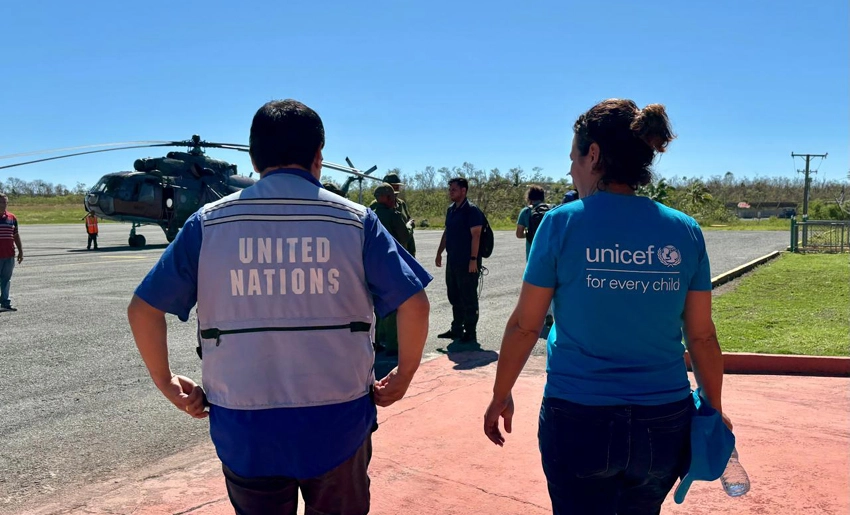The United Nations System, through interagency collaboration, is implementing an action plan aimed at mobilizing resources. To support the recovery of the population affected by Hurricane Melissa in eastern Cuba.
Sergio Novás Tejero, UN Development Partnerships and Financing Officer, explained during a meeting in Holguin that the program coordinates actions in key sectors. Such as public health, education, nutritional security, and logistics. With contributions from the World Food Programme (WFP), the United Nations Children’s Fund (UNICEF), and the World Health Organization (WHO).
In response to the damage caused by the floods to the agri-food sector, Rolando Verdes Sánchez, a member of the WFP emergency team, stated that they will assist approximately 900,000 people in 33 municipalities in eastern Cuba. 11 of them in Holguin province, by distributing rice, grains, and oil. Prioritizing the most affected households and vulnerable population groups.
As part of the hurricane response, the European Union’s DG ECHO humanitarian aid office allocated funds to the operation. Enabling the acquisition of more than 120 tons of essential supplies for the eastern provinces, commented Noel Samson, an official with the agency.
Duniesky Cintra, a consultant for the WHO and the Pan American Health Organization in the country, explained that, amidst the transmission of arboviruses in the territory, predominantly chikungunya and dengue. They are developing a strategy aimed at strengthening the epidemiological response, with donations of mosquito nets, repellents, and new fumigation equipment. Eight of which were delivered to Santiago de Cuba.
Before the hurricane struck, the Octavio de la Concepción y la Pedraja Pediatric Hospital in Holguin received donated technology from Puerto Rico. Allowing it to respond to the event with greater healthcare capacity, he added. The goal is to continue mobilizing resources and allocating them to the prioritized municipalities. Which in the northeastern region are Urbano Noris, Cacocum, and Sagua de Tanamo, in order to respond to existing needs. This strategy, implemented for the first time under an anticipatory framework. Allowed for the prepositioning of supplies in advance, Novás Tejero noted.
Verdes Sánchez highlighted that, coordinated by the UN Office for the Coordination of Humanitarian Affairs. They carried out an initial deployment before the cyclone’s arrival by distributing food for the preparation of hot meals in evacuation centers. An action that continues to benefit institutions in the most affected communities.
The United Nations System, through the Action Plan in response to Hurricane Melissa and the Anticipatory Action Framework, with funding of four million dollars from the Central Emergency Response Fund. Undertook a swift and coordinated response aimed at accompanying, supporting, and strengthening the actions of the Cuban government even before the hurricane struck the island.
With information from CNA
- Experts Warn About Sleep Quality When Sleeping with Your Phone - 25 de February de 2026
- Communications Sector in Holguin Rejects Blockade Against Cuba - 25 de February de 2026
- Campaign in Holguin Engages Youth Against Drug Use - 25 de February de 2026

